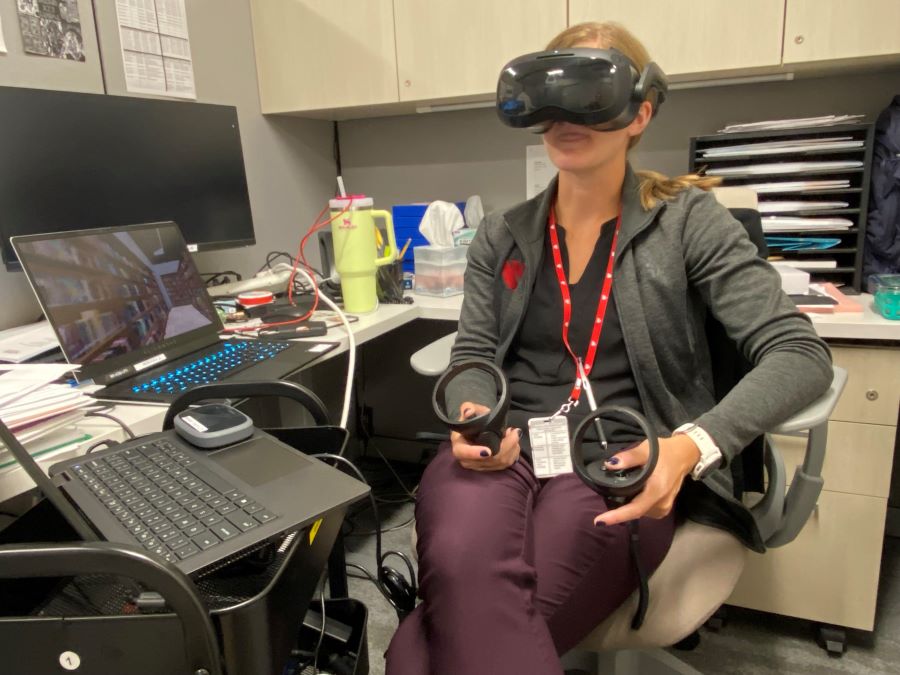Current Research Grants and Studies

Virtual Reality Headset Used for the Fear & Anxiety Study
Dr. Dulce Maroni and her team work closely with our physicians and residents on a variety of grants and studies. Our Department currently has over 30 active research studies, funded by the NIH, industry, disease foundations and philanthropy.
Optimization of treatment for spinal cord injuries is the focus of two studies within our department. One study uses a novel drug for the treatment of traumatic spinal cord injuries while the other evaluates the regulation of spinal cord perfusion pressure in the spinal cord injury population. Assessing sensory and motor impairments, quality of life, functional outcomes, and independence in activities of daily living are key components of these studies.
This study focuses on functional, imaging, and safety outcomes of an FDA-approved device used in mechanical thrombectomy procedures for the treatment of acute ischemic stroke. Standard-of-care assessments and evaluations are utilized during study follow-up.
Sleep dysfunction in individuals with Parkinson’s disease is highly prevalent, and significantly debilitating. In this NIH sponsored study, we are using deep brain stimulation and adaptive stimulation algorithms targeting brain biomarkers to improve sleep quality. The goal is to optimize sleep in this patient population and increase the subjective and objective metrics of restfulness and sleep quality.
Resection of infiltrating tumors and metastases during central nervous system tumor surgery can affect the brain’s structural and functional connections. The focus of this research is understanding these changes in brain connectivity patterns and how these impact neurological recovery, repair of brain networks, neurocognitive function, and neuroplasticity.
Understanding the mechanisms within the brain that determine exaggerated response to fear and anxiety, such as in post-traumatic stress disorder, is the focus of this study. Utilization of virtual reality to create realistic, stressful scenarios while recording brain activity will provide insight into the intracranial neurophysiological signals that trigger emotional responses to threat.
Idiopathic intracranial hypertension is an incompletely understood disease characterized by elevated intracranial pressure, which typically affects young, overweight women. The aims of this study are to enhance our understanding of the specific cognitive and neuropsychological deficits present in patients with idiopathic intracranial hypertension, as well as to collect data on the treatment effect of venous sinus stenting, while providing an explanation for the observed changes.
Participation in national data registries allows our researchers to contribute data and information across the subspecialties of neurosurgery, to further our own research efforts as well as for investigators outside of our institution involved in similar efforts. Topics include quality improvement in spinal surgery care, safety and efficacy of local chemotherapy for prevention of brain tumor recurrences, and identification of neurostimulation targets.
